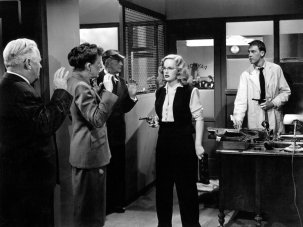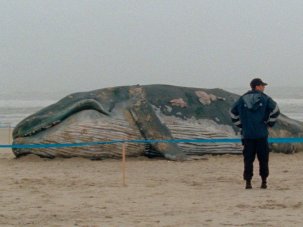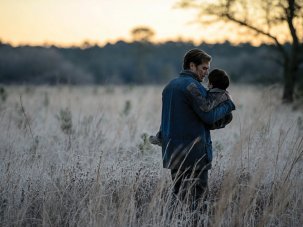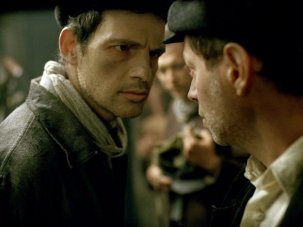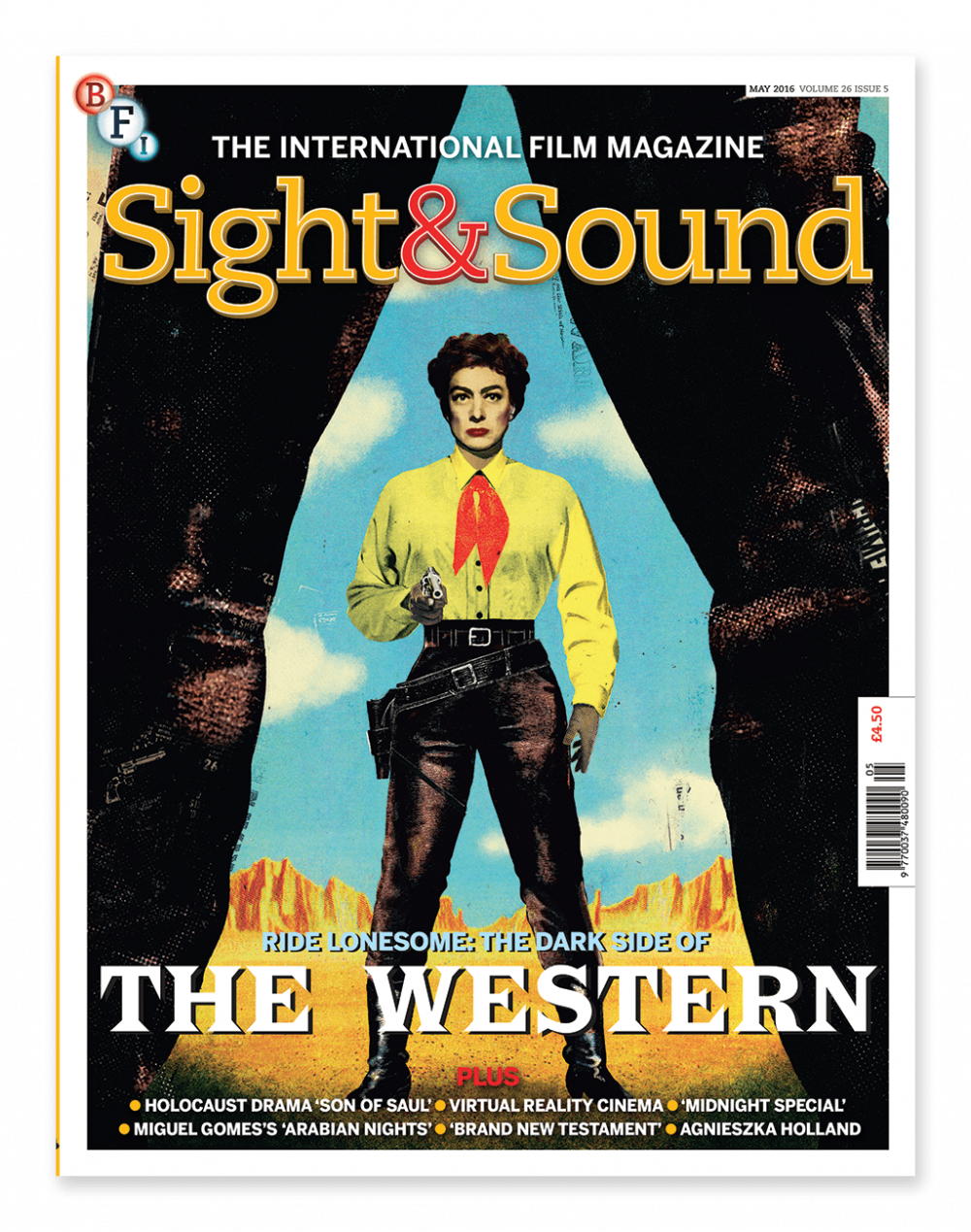
Saddle your horses and strap on your six-shooter, because our May issue takes a ride down the Wild West’s lonesome trails. Our Deep Focus special feature, published to tie in with a corresponding season of 12 films at the BFI Southbank, takes an in-depth look at the western’s turn to darker, more psychologically complex and troubling themes in the post-war years – the heyday of the ‘psychological western’.
Posted to subscribers and available digitally 1 April
→ Buy a print copy
→ Access the digital edition
→
On UK newsstands 5 April
Graham Fuller explores this most fascinating period when, in the troubled aftermath of World War II, a new breed of western emerged, one that borrowed elements of film noir to present a very different kind of hero to the one who had ridden West in search of land, liberty and the pursuit of happiness in the triumphant expansionist dramas of the 1920s and 30s. Obsessive, violent and often masochistic, these angry, alienated protagonists lent the films psychological depth and moral complexity, helping to reinvigorate the genre and better enable it to grapple with the socio-political concerns of the Cold War era.
One of the most daringly original and still startlingly iconoclastic westerns of the period was Nicholas Ray’s Johnny Guitar, starring Joan Crawford as saloon owner Vienna. As the film is re-released into UK cinemas to coincide with Sight & Sound’s Ride Lonesome: The Psychological Western season, Imogen Sara Smith looks again at this unique fever dream of a movie, and at the role of women in other westerns of the period.
Of the new films featured in this month’s issue, none are as viscerally powerful as Hungarian director László Nemes’s extraordinary, devastating debut Son of Saul, which won the Academy Award for Best Foreign Language Film earlier this year. A searing drama that takes us straight into the Holocaust’s heart of darkness, Nemes’s film dares to depict the ‘reality beyond belief’ of life inside Auschwitz-Birkenau in 1944 as a prisoner tries to arrange a Jewish burial for his son. Historian Nikolaus Wachsmann, author of the highly acclaimed book KL: A History of the Nazi Concentration Camps, praises a film that is unflinching in its depiction of the “nightmare of crime” that was the web of Nazi death camps in Europe.
Another director who has attempted to portray the horrors of Europe in the Nazi years is the Polish filmmaker Agnieszka Holland. From her portrait of the plight of the Jews in World War II in Europa Europa, and her depiction of life under Communism in A Woman Alone, up to her more recent TV work in America on shows such as The Wire and Treme, Holland’s remarkable body of work offers a masterclass in versatility. On the eve of a retrospective of her work at BFI Southbank, Holland talks to Isabel Stevens about her long and fascinating career.
Miguel Gomes’s hugely ambitious three-part Arabian Nights explores more recent European history, blending as it documentary and fiction in a labyrinth of tales exploring the travails of Portugal in the aftermath of the 2008 economic crisis. Nick Pinkerton talks to the director about the grim reality of austerity, his long fascination with Scheherazade’s folk tales and why he just kept telling stories until the money ran out.
Lighter relief arrives in the form of Belgian director Jaco Van Dormael’s scabrously funny The Brand New Testament, a version of the biblical creation story in which a slobby, sadistic God dreams forth Brussels and has to face down a rebellion led by his young daughter. After a long period away from the limelight following his brilliant debut Toto the Hero, the film finds Van Dormael back on top form. He talks to Jonathan Romney.
Lastly in this month’s features, we examine the cutting-edge technology that is making virtual-reality filmmaking very much an actual reality. Marisol Grandon surveys this brave new world, explores its great potential and wonders if it will it prove as exhilarating and disorienting for modern viewers as the experience of early cinema was for the audiences who watched the Ciotat train arrive at the station in the Lumières’ short in 1896.
Elsewhere in this month’s issue, we have reviews of every new UK cinema release, including Jacques Audiard’s Palme d’or winning Dheepan, Jeff Nichols’s naturalistic sci-fi Midnight Special, Don Cheadle’s Miles Davis biopic Miles Ahead and Mark Cousins’s ode to his hometown in I Am Belfast.
Our Wide Angle section profiles five of the most exciting new Spanish filmmakers working today, examines the work of Lithuanian artist filmmaker Deimantas Narkevicius, surveys Shakespeare adaptations in the silent era and more.
Our Home Entertainment section includes a review of a new boxset of Ken Russell’s pioneering TV films, heralds a revival of Chan Kaige’s sweeping Farewell my Concubine, and picks out some of the most exciting new DVD and Bluray releases.
Our book reviews hail a groundbreaking biography of production designer William Cameron Menzies and round up a handful of other recently published books.
All this and much more besides.
Features
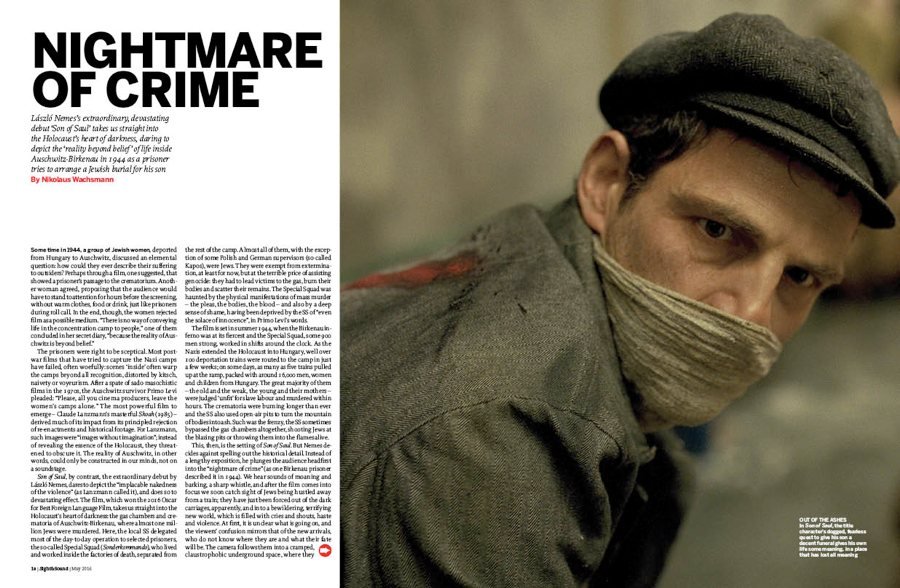
Nightmare of Crime
László Nemes’s extraordinary, devastating debut Son of Saul takes us straight into the Holocaust’s heart of darkness, daring to depict the ‘reality beyond belief’ of life inside Auschwitz-Birkenau in 1944 as a prisoner tries to arrange a Jewish burial for his son. By Nikolaus Wachsmann.
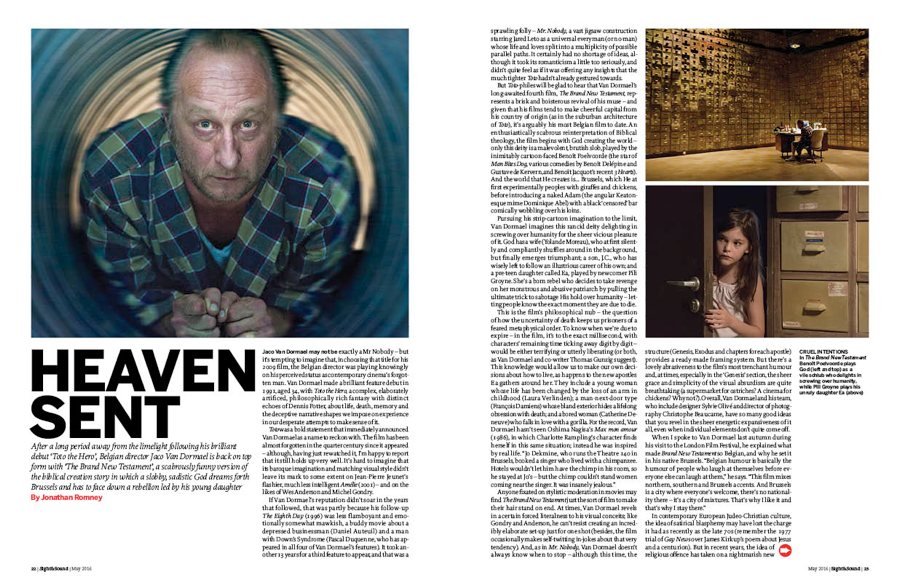
Heaven Sent
After a long period away from the limelight following his brilliant debut Toto the Hero, Belgian director Jaco Van Dormael is back on top form with The Brand New Testament, a scabrously funny version of the biblical creation story in which a slobby, sadistic God dreams forth Brussels and has to face down a rebellion led by his young daughter. By Jonathan Romney.
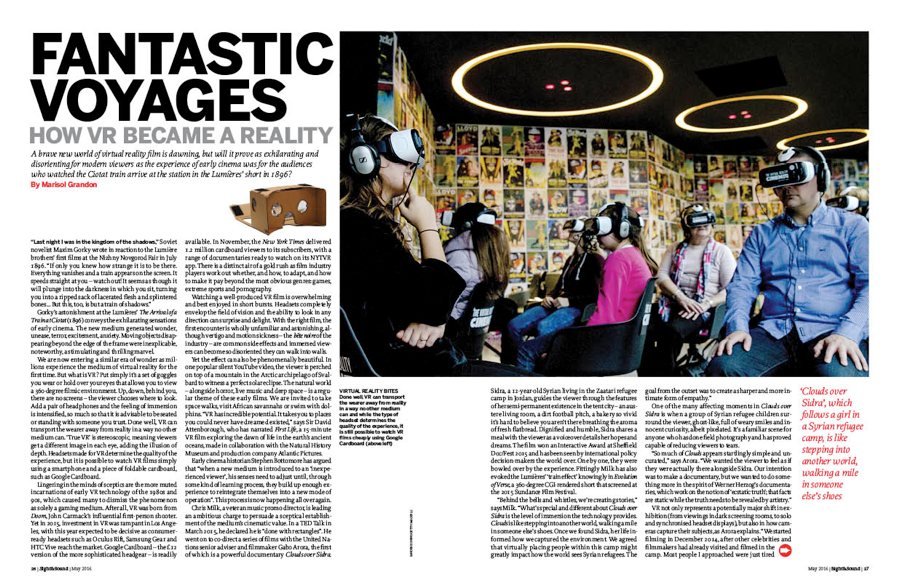
Fantastic Voyages: How VR became a Reality
A brave new world of virtual reality film is dawning, but will it prove as exhilarating and disorienting for modern viewers as the experience of early cinema was for the audiences who watched the Ciotat train arrive at the station in the Lumières’ short in 1896? By Marisol Grandon.
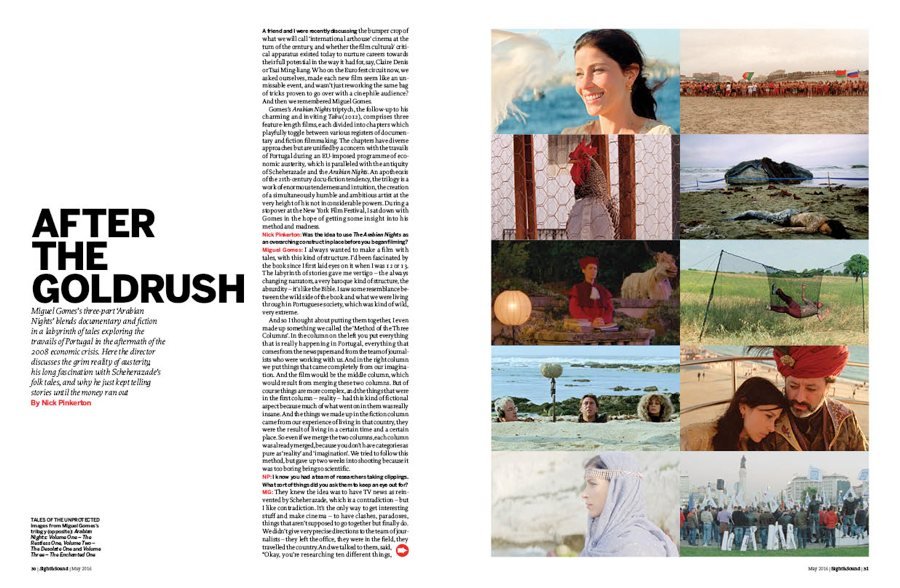
After the Goldrush
Miguel Gomes’s three-part Arabian Nights blends documentary and fiction in a labyrinth of tales exploring the travails of Portugal in the aftermath of the 2008 economic crisis. Here the director discusses the grim reality of austerity, his long fascination with Scheherazade’s folk tales, and why he just kept telling stories until the money ran out. By Nick Pinkerton.
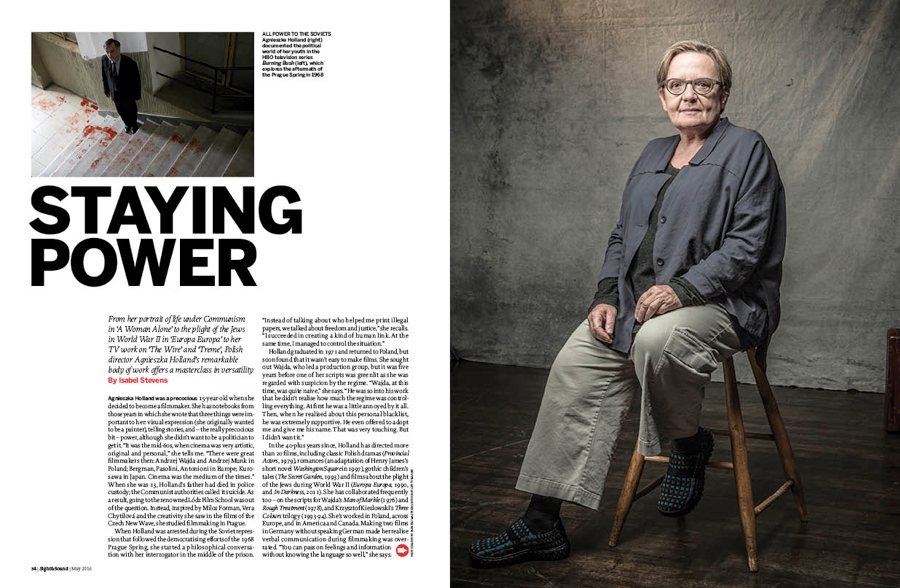
Staying Power
From her portrait of life under Communism in A Woman Alone to the plight of the Jews in World War II in Europa Europa to her TV work on The Wire and Treme, Polish director Agnieszka Holland’s remarkable body of work offers a masterclass in versatility. By Isabel Stevens.
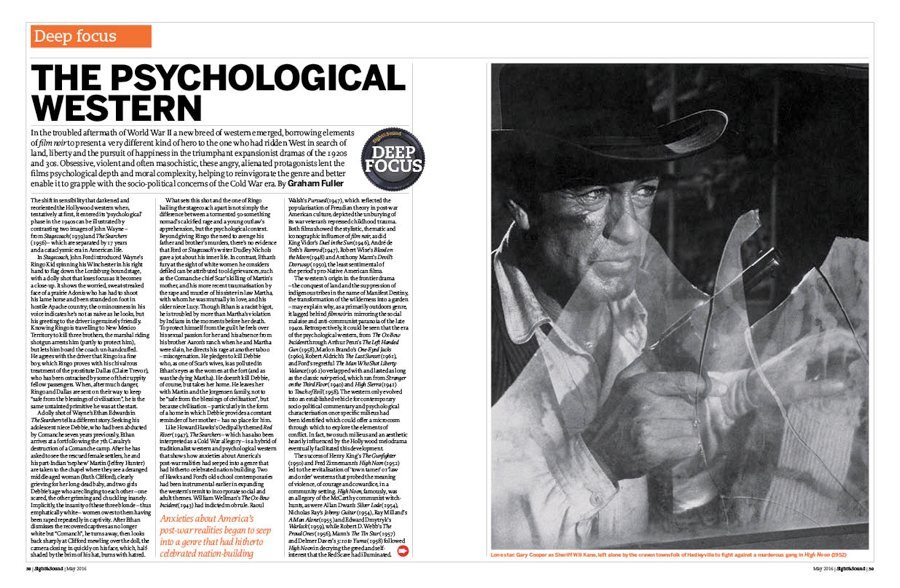
Deep focus: The Psychological Western
In the troubled aftermath of World War II a new breed of western emerged, borrowing elements of film noir to present a very different kind of hero to the one who had ridden West in search of land, liberty and the pursuit of happiness in the triumphant expansionist dramas of the 1920s and 30s. Obsessive, violent and often masochistic, these angry, alienated protagonists lent the films psychological depth and moral complexity, helping to reinvigorate the genre and better enable it to grapple with the socio-political concerns of the Cold War era. By Graham Fuller.
Plus: Westward the women
There’s never been anything quite like Nicholas Ray’s Johnny Guitar, but many other westerns of the era also found great roles for women. By Sara Imogen Smith.
Regulars
Editorial
Virtual reality, experiential art and the cinema.
Rushes
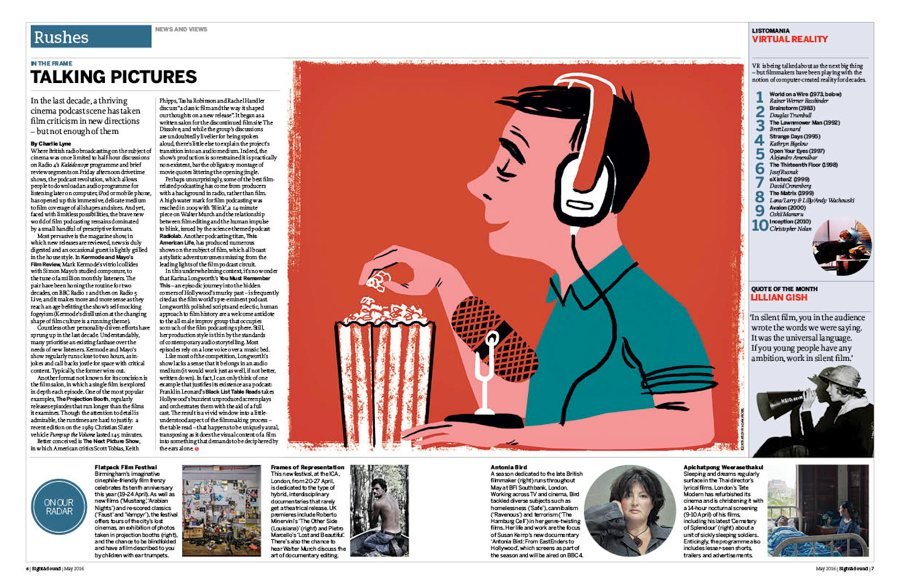
In the frame: Talking pictures
In the last decade, a thriving cinema podcast scene has taken film criticism in new directions – but not enough of them. By Charlie Lyne.
Listomania: Virtual reality
Object lesson: Fowl play
In film, eggs can be symbols of birth, of life curtailed, of martyrdom. Just don’t expect them soft-boiled or over easy. By Hannah McGill.
The five key…: Euro immigration films
As Jacques Audiard’s Dheepan hits UK screens, we travel in search of other key works exploring the immigrant experience in Europe. By Michael Brooke.
Interview: Tom Geens
Geens’s surreal Couple in a Hole sidesteps genre conventions to present a poignant, unclassifiable portrait of grief and sadness. By Trevor Johnston.
Exhibition: Eisenstein’s England
A three-week visit Sergei Eisenstein made to England in 1929 left an enduring imprint on the great Russian director’s imagination. By Ian Christie.
Dispatches: Crash, bang, wallop
‘Cinematic’ doesn’t have to mean big and brash – it’s just as much about magnifying details, controlling space and marking time. By Mark Cousins.
The Industry
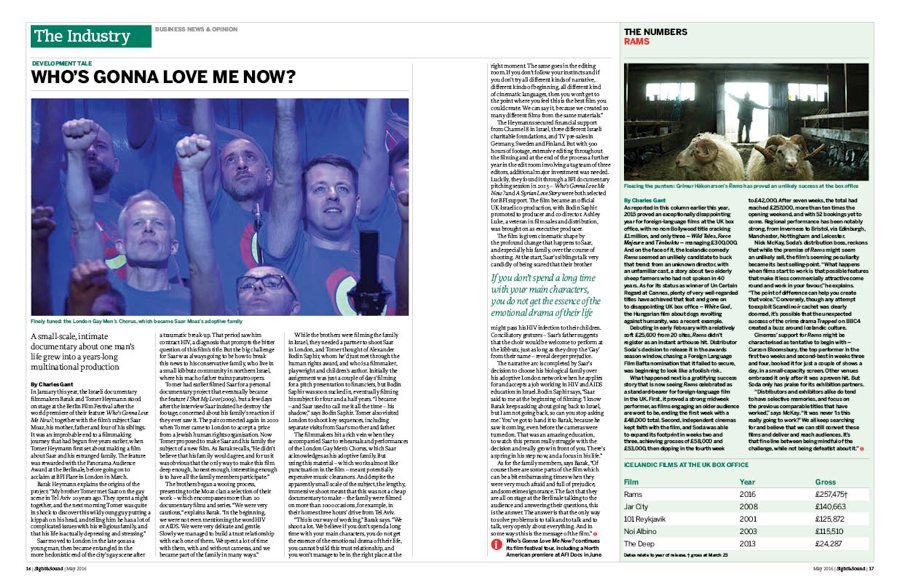
Development tale: Who’s Gonna Love Me Now?
A small-scale, intimate documentary about one man’s life grew into a years-long multinational production. By Charles Gant.
The numbers
Rams and Icelandic films at the UK box office. By Charles Gant.
Wide angle
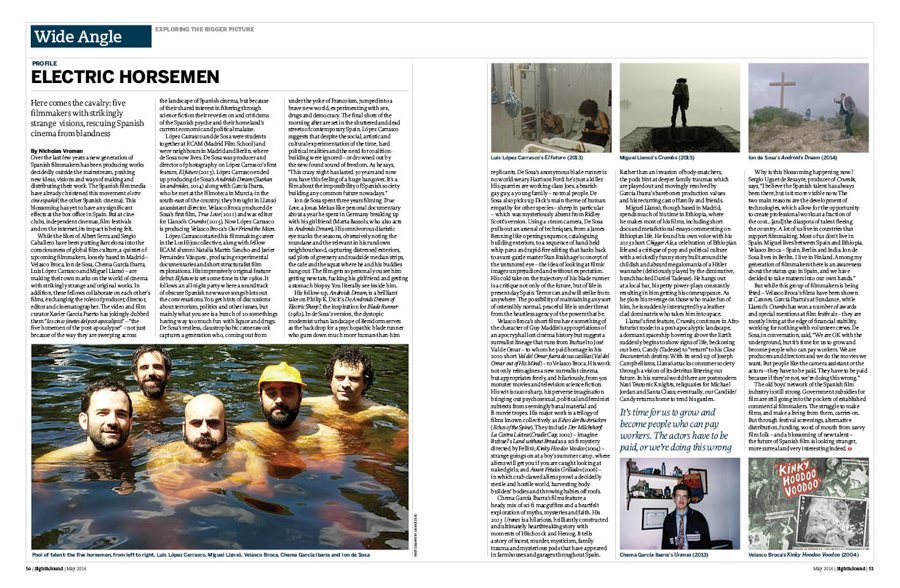
Profile: Electric horsemen
Here comes the cavalry: five filmmakers with strikingly strange visions, rescuing Spanish cinema from blandness. By Nicholas Vroman.
Soundings: The look of silence
Cinema is an art of noise – words and music, whimpers and bangs. And when the sound stops, the effect can be explosive. By Sam Davies.
Primal screen: the world of silent cinema
Filmed Shakespeare is almost as old as cinema itself – but in the silent era, it was done very differently. By Bryony Dixon.
Festival: Pier pressure
Newcastle’s AV Festival took its cue from Orwell’s The Road to Wigan Pier to ask hard questions about contemporary political reality. By John Beagles.
Artists’ moving image: Monument man
From sculpture to sex-trafficking, the work of Deimantas Narkevicius explores the legacy of Soviet rule in Eastern Europe. By Juliet Jacques.

Reviews
Films of the month
Dheepan
I Am Belfast
Midnight Special
Miles Ahead
plus reviews of
The Absent One
Allegiant
Among the Believers
Anguish
Arabian Nights: Volume One – The Restless One
Arabian Nights: Volume Two – The Desolate One
Bastille Day
Boulevard
The Brand New Testament
Couple in a Hole
Demolition
Desert Dancer
Despite the Falling Snow
The Divide
Eisenstein in Guanajuato
Eye in the Sky
Feast of Varanasi
God’s Not Dead 2
The Grump
Heaven Knows What
The Last Man on the Moon
London Has Fallen
Louder than Bombs
The Man Who Knew Infinity
Mapplethorpe: Look at the Pictures
Mojave
Motley’s Law
Nasty Baby
Our Little Sister
The Passing
Risen
Secret in Their Eyes
Son of Saul
10 Cloverfield Lane
Whiskey Tango Foxtrot
Zootropolis
Home Cinema features

Immortal Ken: Ken Russel: The Great Composers and Ken Russell: The Great Passions
The arts features Ken Russell made at the BBC reveal a visionary filmmaker with an infuriating gift for self-sabotage. By Robert Hanks.
Revival: Farewell My Concubine
Chen Kaige’s tale of desire and betrayal sweeps through half a century of tumultuous Chinese history. By Philip Kemp.
Lost and found: The Sin of Harold Diddlebrock
Hapless Harold Lloyd finds his American Dream skewered by cynical reality in a gleeful fable from director Preston Sturges. By Ian Mantgani.
plus reviews of
American Horror Project
Autumn Almanac
Bande à part
Death by Hanging
The Friends of Eddie Coyle
Films by Kitano Takeshi
Michael Collins
Peter de Rome: Grandfather of Gay Porn
Pink String and Sealing Wax
Pressure Point
Shooting Stars
Something Different
Television
The Borgias
Unbreakable Kimmy Schmidt
Romanzo Criminale – La serie
Books
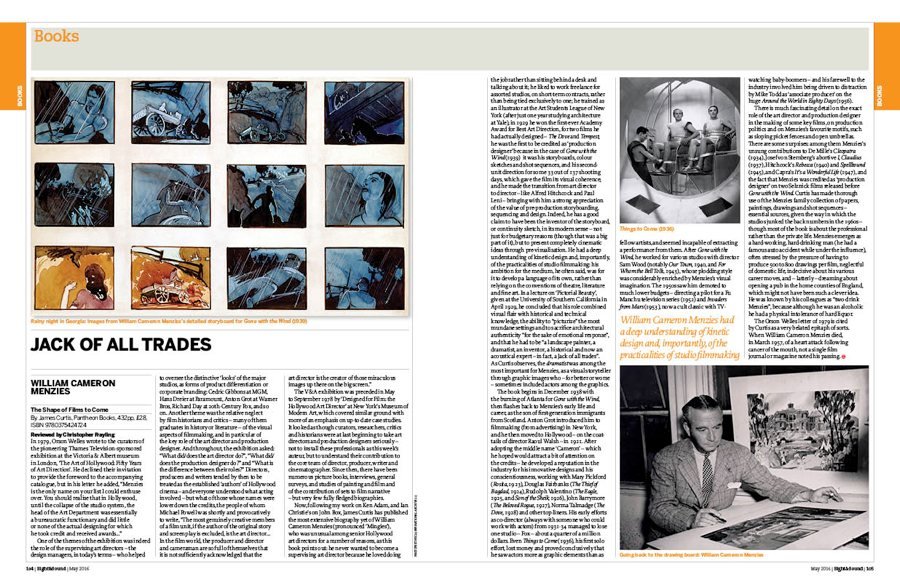
William Cameron Menzies: The Shape of Films to Come by James Curtis (Pantheon Books) reviewed by Christopher Frayling
Basque Cinema: A Cultural and Political History by Rob Stone and María Pilar Rodríguez (I.B. Tauris) reviewed by Maria Delgado
Better Living Through Criticism: How to Think About Art, Pleasure, Beauty and Truth by A.O. Scott (Jonathan Cape) reviewed by Nick James
Mass effect: Art and the Internet in the Twenty-First Century edited by Lauren Cornell and Ed Halter (MIT Press) reviewed by Nick Pinkerton
Facing Blackness: Media and Minstrelsy in Spike Lee’s Bamboozled by Ashley Clark (The Critical Press) reviewed by Nelson Abbey
Letters
J.G. Ballard’s cinephilia
Nicolas Roeg’s masterpiece, Eureka
More technique and texture, please
Margaret Tait’s muse Alex Pirie
RIP Nicoletta Machiavelli
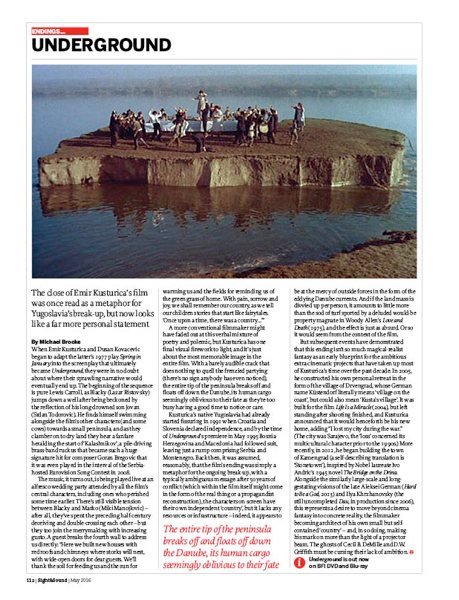
Endings
Underground
The close of Emir Kusturica’s film was once read as a metaphor for Yugoslavia’s break-up, but now looks like a far more personal statement. By Michael Brooke.
Further reading
-
The Digital Edition and Archive quick link
Log in here to your digital edition and archive subscription, take a look at the packages on offer and buy a subscription.




